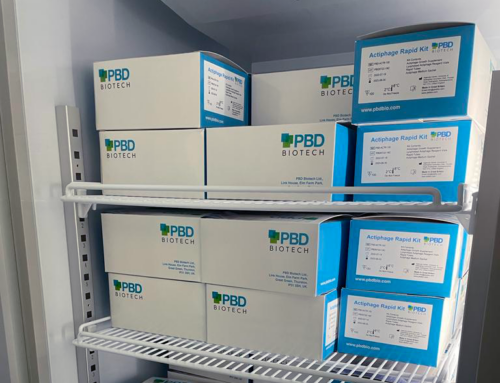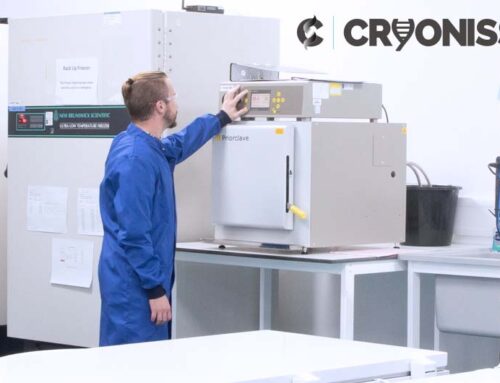Critical Impact of COVID-19 on Current and Future Clinical Trials
Guest Editorial by Dr Louise Scott: Impact of COVID-19 on current and future clinical trials – a niche CRO’s perspective.
Aptus Clinical is a Clinical Contract Research Organisation (CRO) based in Alderley Park, specialising in innovative clinical trial design and management in areas including oncology, rare diseases, and advanced cell and gene therapies.
The global COVID-19 outbreak has devastated countless industries, dramatically impacting clinical trials – a vital stage of drug development. Exceptional efforts and problem-solving were required to maintain trial integrity and patient safety and so taking a step back, could it actually be said that this pandemic has sparked a revolution in trial design going forward?
Dr Louise Scott, Director of Clinical Services for Aptus Clinical, tells us about the impacts of COVID-19 on current clinical trials, as well as adapting future clinical trial design as recruitment begins for the new, Aptus-lead, COSMIC-19 trial.
Impact of COVID-19 on current and future clinical trials – a niche CRO’s perspective.
Given that signs are promising with respect to the roll-out of vaccine(s) and finding treatments to tackle the global pandemic, now seems an appropriate time to reflect on the impact of SARS-CoV-2 (COVID-19) on clinical trials and how it will shape their future design. Aptus Clinical is a niche CRO primarily focused on delivery of complex Phase 1/2 oncology trials and, as with other businesses across the industry, has experienced an unprecedented year.
As the news started to break about COVID-19 in early 2020, nobody would have imagined the dramatic health and financial impact the virus would have globally. Using the United Kingdom as an example, it became clear during February 2020 that the National Health Service (NHS) was being stretched and that resources would be diverted away from clinical trials and routine non-urgent care.
By March this year, the implementation of a UK national lockdown meant that all recruitment across our clinical trials was put on hold and our trial monitors were prohibited from visiting sites. Our focus shifted to trial maintenance, ensuring on-trial patient safety whilst minimising the burden on the NHS. What we found was that there was no “one size fits all” solution, but that a tailored approach was needed according to the trial and sites.
There were logistical challenges to overcome such as shipping IMP directly to patients and reducing the number of patient on-site visits whilst implementing or increasing remote visits via tele/video conferencing. As non-essential NHS staff were asked to work from home and clinical trial teams were re-deployed to support the COVID-19 initiative, we saw a knock-on effect including delays in data entry.
As the scale of the first wave became apparent, it ultimately resulted in new non-COVID-19 studies being delayed or cancelled, with focus diverted towards a national cohesive effort across the industry to prioritise COVID-19 related trials, including the fast tracking of regulatory approvals and start-up times.
By June 2020 we started to see the implementation of remote monitoring solutions, sites were recommencing patient recruitment and there were fewer delays in data entry. Risk assessments were put in place to mitigate against virus transmission between our monitors and hospital sites and plans were drawn up to allow the resumption of onsite monitoring visits and new study start-up activities.
What was striking to me was the overarching willingness to pull together to find solutions to maintain and manage patients on clinical trials, ensuring that their safety was not compromised. Our strong relationships with investigators and sites helped us to navigate through challenging times and has ultimately made these relationships stronger.
As of September 2020, we have seen limited, controlled access to sites with a combination of on and off-site visits now being the normal approach.
Unfortunately, we are now starting to see the impact of the second wave of COVID-19, with some sites again closing access to on-site visits. We may see additional delays to studies over the coming weeks, however sites are continuing to work hard to ensure that backlogs in data are cleared and patients continue to have access to potentially life-changing new treatments. Wherever possible, cancer services are still being prioritised and we hope to see continued recruitment into trials during this difficult period.
Moving forwards, our approach to future trials has evolved and will continue to do so. There is a clear focus on streamlining clinical trial designs, ensuring that they are patient-centric and thereby reducing the burden to both patients and hospital/research sites. Oncology has been at the forefront of adaptive trial design, reducing development time, cost, and speed to market, whilst protecting patient safety and maintaining data integrity.
It is these principles that have been applied successfully in the development of COVID-19 vaccines and I envisage that these strategies will be used in the design of future trials across the wider clinical development industry.
Alongside the challenges, the pandemic has also brought opportunities, and Aptus Clinical has been quick to embrace these. For example, advancements in digital technologies are changing the way in which we monitor and collect data from patients. Remote monitoring, home nursing, patient wearables and telemedicine are all becoming more extensively available, accepted and used. This will ultimately allow wider access for patients to participate in trials, removing potential geographical limitations whilst providing the option for real-time monitoring.
Historically there has been a reluctance to embrace change, with the implementation of new technologies often slow and cumbersome. Looking to the future, I envisage that the recent challenges will result in rapid innovation and the desire to utilise new and exciting technologies.
Will things return to pre-COVID-19 ways of working or instead, will we be looking at a brighter “new normal” in the future? I for one am routing for the latter.
Aptus Clinical is proud to have supported several COVID-19 initiatives over the last year. Our digital strategy team are working tirelessly to ensure we are onboard with technological advancements as they hit the market to see where they can be leveraged to support trials of the future.
Dr Louise Scott
Director of Clinical Services






